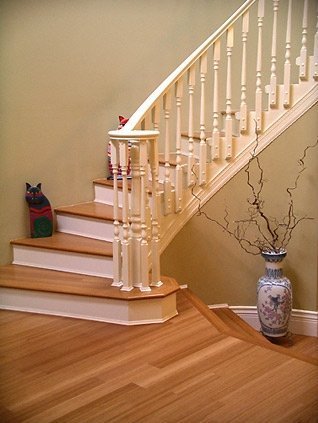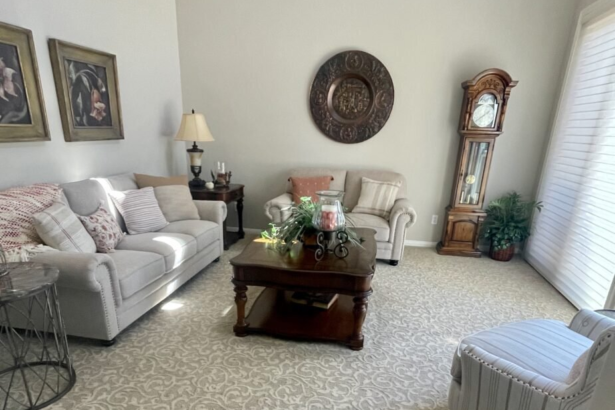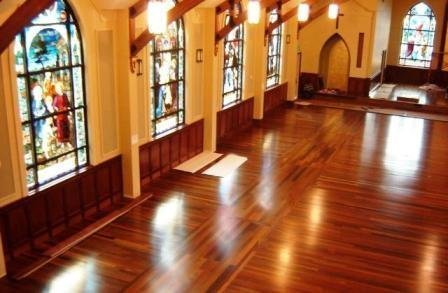Search for all our Brands
West Coast Flooring Center, San Diego Flooring Leader. We are an authorized Tile, Hardwood, Laminate, Carpet, Vinyl Hardware and Cabinets Dealer for Top Brands. You are welcome to come to our new showroom or shop at home/office with our Mobile Office. Free Floor design at your desire location and floor sample. Schedule Now!!
Tile is a versatile and durable flooring option that comes in a variety of materials, styles, and sizes Ceramic Tile, Porcelain Tile, Natural Stone Tile, Mosaic Tile.
American Olean provides a diverse selection of design options to suit different styles and preferences.
Arizona Tile products, including ceramic and porcelain tiles, natural stone (granite, marble, travertine, limestone, and slate), glass tiles, quartz countertops.
Bellezza Ceramica products represent the pinnacle of craftsmanship and are unsurpassed for their quality and detail.
Bosphorus Tile a tile manufacturer that specializes in Turkish-inspired ceramic and porcelain tiles
DalTile specializes in the manufacturing and distribution of ceramic, porcelain, natural stone, and glass tiles
Elysium Tile is a distributor of unique mosaics and luxurious porcelain tiles
Bedrosians Tile has porcelain tiles, natural stone tiles marble, granite, travertine, limestone, and slate, glass tiles, mosaic tiles
Longust Hardwood has been a major wholesale flooring distributor servicing the Southwestern United States
Emser Tile is a prominent tile and stone distributor in North America.
Marazzi Tile specializing in the manufacturing and distribution of ceramic and porcelain tiles.
Mohawk offers a wide range of flooring products, including carpet, hardwood, laminate, luxury vinyl, and tile.
Happy Floors specializing in the distribution of porcelain and ceramic tiles.
Patricio Talavera murals, sinks, hand-brushed tile, subway tile, hexagon and arabesque shaped matte finish tile, liners, relieves.
Pental Quartz Tile offers quartz surfaces for various applications, including countertops, walls, and floors
Shaw Floors manufacturer and provider with a wide range of flooring products for both residential and commercial
SLCC offers hardwood flooring, engineered wood flooring, laminate flooring, luxury vinyl plank (LVP) flooring, and tile flooring.
MSI supplies a wide assortment of porcelain, ceramic, luxury vinyl flooring, engineered hardwood, and natural stone.
Pacific Coast Tile specialize in Porcelain, Ceramic, Glass, Natural Stone, and heated flooring installation.
Hardwood offers a vivid and inviting look that adds a touch of sophistication and elegance to any space. It comes in a wide range of wood species, colors, finishes, and grains, allowing you to choose a design that complements your home interior design. Schedule our Mobile Office Today
Ark Floors specializes in engineered hardwood flooring
Artisan Hardwood offers an incredible range of contemporary wood flooring designs for every room in your home.
Artistry Hardwood Artistry Hardwood Flooring specializes in premium French White Oak flooring.
Cali Floors formerly known as Cali Bamboo, offers a diverse selection of eco-friendly hardwood flooring options.
Diamond Hardwood is a brand that offers hardwood flooring products.
DuChateau Hardwood is a well-known manufacturer and provider of high-quality hardwood flooring
Anderson Tuftex Discover luxurious Anderson Tuftex hardwood. From classic to contemporary
Elegance Exotic Wood specializes in the distribution and sale of exotic wood flooring and related products
Engineered Floors is a leading manufacturer of residential and commercial flooring products
EP Global is a wholesale manufacturer of high-quality Hardwood Flooring and Interior Doors.
Eternity Floors offers a wide range of flooring products, including hardwood, laminate, luxury vinyl, and waterproof flooring.
Galleher Hardwood is a reputable company specializing in hardwood flooring and related products.
Harris Wood
Johnson Hardwood is a well-known manufacturer and supplier of hardwood flooring products
Linco Hardwood has been a leading wholesaler serving both laminate and engineered wood flooring market
Longust Hardwood offer hard surface solutions for almost every hardwood projec
Mamre Floor engineered hardwood flooring is made using only renewable and sustainable wood resources.
Mannington Hardwood is a well-established and reputable manufacturer of hardwood flooring.
Mohawk offers a wide range of floors products, including hardwood carpet, laminate, luxury vinyl, and tile.
Mullican Hardwood: Elegant and Durable Flooring for Your Home
Naturally Aged Flooring is a company that specializes in the manufacturing and distribution of hardwood flooring products.
Old Master Wood specializes in the production of wood products, including hardwood flooring
Pravada Hardwood
Shaw Floors manufacturer and provider with a wide range of wood flooring products for residential and commercial
SLCC offers hardwood flooring, engineered wood flooring, laminate flooring, luxury vinyl plank (LVP) flooring, and tile flooring
Tecsun Floors offers a wide variety of hardwood and laminate flooring products
Tom Duffy Hardwood offers a wide range of hardwood flooring options
Tri-West Ltd hardwood specializes in the distribution of a wide range of flooring products, including hardwood flooring.
Triangulo Hardwood Floors
Urban Floors offers solid hardwood flooring made from a single piece of wood.
Unique Hardwood a luxury hardwood flooring boutique offering a wide range of in-stock European wood flooring.
US Floors is a family-owned company based in Monument, Colorado offers Engineered Flooring, Unfinished Hardwood
Vellichor Hardwood
Villagio Hardwood
Virginia Hardwood offers solid hardwood flooring made from a single piece of wood.
Carpet gives a soft and cushioned floor surface to underfoot, making it a comfortable flooring option, especially in rooms where you spend a lot of time, bedrooms or living rooms.
Anderson Carpet offers carpets specifically designed for residential and commercial spaces.
Air-O-Mist Carpet is a popular and versatile flooring option that adds warmth, comfort, and style to any room.
Beaulieu Of America Carpet provides carpets in various styles, textures, colors, and patterns for Residencial and Commercial
Dixie Home focuses on providing high-quality carpets specifically designed for residential spaces.
Dream Weaver Carpet Their residential carpet collections include options for bedrooms, living rooms, hallways and more
Engineered Floors Carpet provides carpets in various styles, colors, patterns, and textures
Fabrica Carpet are designed to enhance the elegance and comfort of homes, while their commercial carpets are engineered to withstand heavy foot traffic and provide durability in commercial settings.
Kraus Carpet Flooring established in 1959 by Michael Kraus, is a prominent manufacturer and distributor of tufted broadloom carpet and modular carpet tiles
Milliken Carpet solutions for residential and commercial, known for their high-quality carpet tiles and broadloom options.
Mohawk Carpet carpet collections include options for bedrooms, living rooms, hallways, and other areas, while carpets suitable for commercial settings, such as offices, hotels, retail spaces, and more.
Nourisan Carpet is renowned for luxurious, high-quality carpets and rugs, blending timeless elegance design.
Phenix Carpet incorporates innovative technologies into their carpet products to enhance performance, durability, and stain resistance.
Shaw Carpet offers a diverse selection of carpet styles, designs, and textures to suit different preferences and needs.
Stanton Carpet offer carpets made from natural fiber such as wool, sisal, seagrass, jute, and blends of these fibers.
Unique Carpet utilize cutting-edge manufacturing techniques and materials to provide high-quality and performance-driven carpets.
Laminate Floors is constructed with multiple layers of synthetic materials that are fused together through a lamination process and offers the look of hardwood, stone, or tile at a more affordable price
Artisan Laminate brings out your home’s exotic beauty with tropical teak, or ring in a new peaceful era with harmonious blends of mahogany and bronze.
Cali Floors Laminate offers durable, stylish flooring designed to mimic natural hardwood with enhanced resilience.
Eternity Laminate The wear layer protects the surface from scratches and wear, while the decorative layer provides aesthetic.
Kraus Laminate Flooring is designed for easy installation and low maintenance, making it a practical choice for busy households. With a variety of styles, it suits diverse interior
Lions SPC, LVP, WPC These floors are 100% waterproof, scratch-resistant, and designed for high-traffic areas.
Mannington Laminate incorporates advanced technologies into its products, such as ScratchResist®, which provides enhanced resistance to scratches and scuffs.
Mohawk Laminate offers GenuEdge, which creates realistic beveled edges for an authentic hardwood look.
Old Master Laminate does the best to ensure every customer is delighted with their decision to choose Old Master Products for their Laminate flooring needs.
Pacific Direct Laminate is designed to be durable and resistant to stains, scratches, and fading.
Republic Laminate Laminate strives to provide realistic visuals that closely resemble natural materials, allowing homeowners to achieve their desired look
Shaw Laminate utilizes a click-lock or tongue-and-groove installation system, allowing the planks to interlock securely without the need for adhesives.
SLCC Laminate is designed to be low-maintenance and can be cleaned with regular sweeping or vacuuming and occasional damp mopping.
Tecsun Laminate offers a variety of aesthetic options, including different wood species, stone patterns, and tile designs.
Tri-West Ltd Laminate provides a wide selection of top quality laminate
LVT Flooring is a type of flooring that replicates the look of natural materials like hardwood, stone, or ceramic tile while providing the benefits of vinyl flooring
Apollo Vinyl
Beaulieu Of America LVP designed to mimic the look of real hardwood while providing the durability
Cali Floors Vinyl
DuChateau LVP is designed to look like the appearance of natural materials such as wood, stone, or concrete
EP Global specializing in high-quality, eco-friendly options for commercial and residential spaces. Known for exceptional durability and design
Eternity LVT is designed to mimic the appearance of natural materials like LVP, hardwood, stone, or tile.
Galleher Vinyl vinyl flooring offerings typically include a range of styles, colors, and textures to suit various design preferences.
Karndean Vinyl offers LVP that mimics the appearance of natural materials like wood, stone, and tile.
Kraus Luxury Vinyl delivers high performance with stunning designs that replicate natural wood and stone. Its waterproof, scratch-resistant surface is perfect for busy spaces
Longust LVP may include a variety of wood-look and stone-look options in different colors, plank sizes, and textures.
Mannington Vynil is a popular choice among homeowners and commercial clients.
MegaClic is due to our commitment to providing the best value in high quality laminate floor at an affordable price.
Mohawk LVP look of hardwood flooring while offering the benefits of vinyl, such as durability, water resistance, and easy maintenance.
Naturally Aged Flooring offers a variety of options designed to mimic the look of natural wood.
Shaw Floors is a choice for homeowners and commercial projects due to its quality, durability, and wide range of design options.
Royal House Vinyl offers premium vinyl flooring that combines style, durability, and ease of maintenance.
SLCC Floors is designed to mimic the appearance of real wood, with attention to detail in texture, color, and grain patterns.
Tecsun Floors offers additional features such as enhanced durability, water resistance, or sound absorption in specific products.
Tom Duffy Floors LVP Flooring supplies for residential and commercial LVP projects including Vinyl, waterproof tile
Urban Floor VinylVinyl planks ensure that no matter what kind of pets you have
Natural Stone adds a sense of sophistication and elegance to any space in your home. It is made from various types of stone, such as marble, granite, limestone, slate, or travertine. We are Dealer for many top brands
Bedrosians inventory includes ceramic, porcelain, glass, and natural stone tiles in various sizes, colors, textures, and styles.
Cosentino Countertops offer premium surfaces crafted from innovative materials like Silestone quartz and Dekton
Emser specializes in natural stone products, including marble, granite, limestone, travertine, slate, and quartzite.
MS International offers quartz surfaces under the brand name Q™ Quartz.
Raphael Stone Countertops
Area Rugs are important to select a rug that fits the specific needs and style of the room while complementing the existing flooring and consider factors such as the size, shape, material, durability, and maintenance.
Fabrica Area Rugs specialize in producing luxurious rugs with premium materials and exquisite craftsmanship.
Shaw Area Rugs offers a diverse collection of area rugs to suit different design preferences and needs.
Stanton Area Rugs sources fine wools, natural fibers like sisal and jute as well as synthetic fibers like nylon and polypropylene
Unique Area Rugs often feature intricate designs, unique patterns, and special weaving techniques.
Consentino Cabinets bring together functionality and contemporary design, enhancing any kitchen or bathroom space.
Fairmont Designs crafts elegant, high-quality furniture for bathrooms, bedrooms, and living spaces, blending timeless design
Merit Cabinets offers high-quality, custom cabinetry solutions known for their durability and refined craftsmanship.
Top Knobs Hardware provides premium cabinet hardware, including knobs, pulls, and handles, with a focus on quality design



